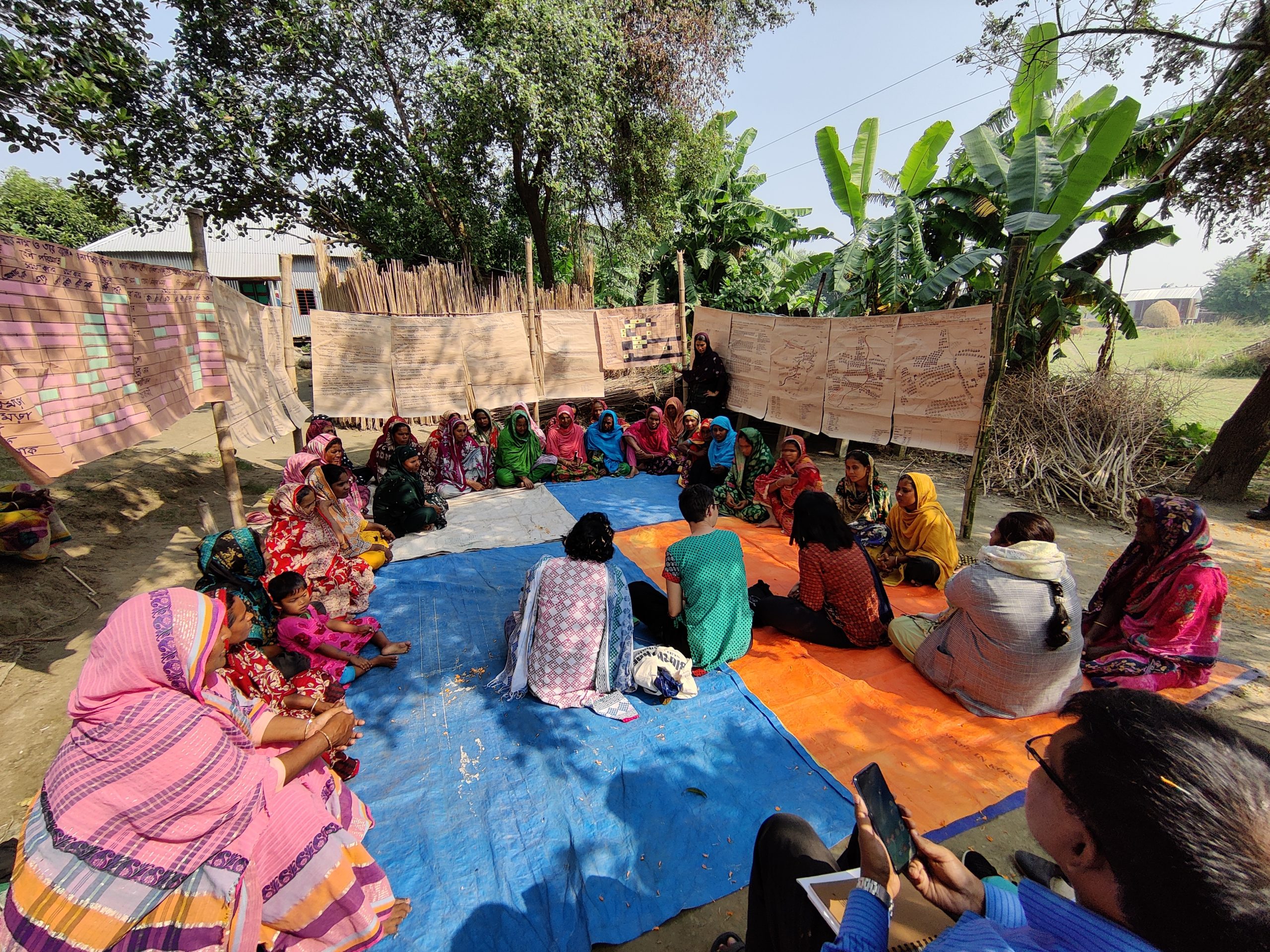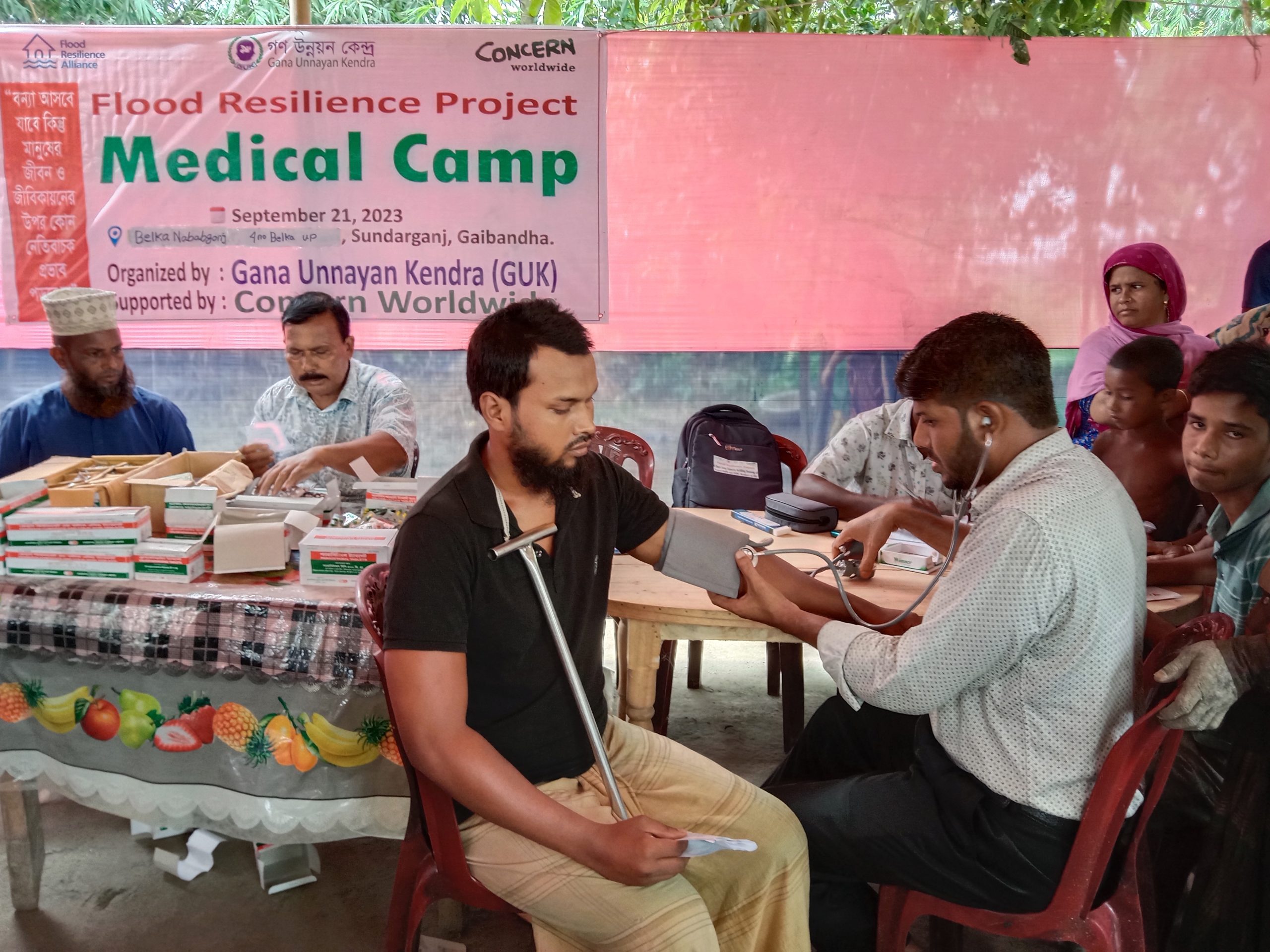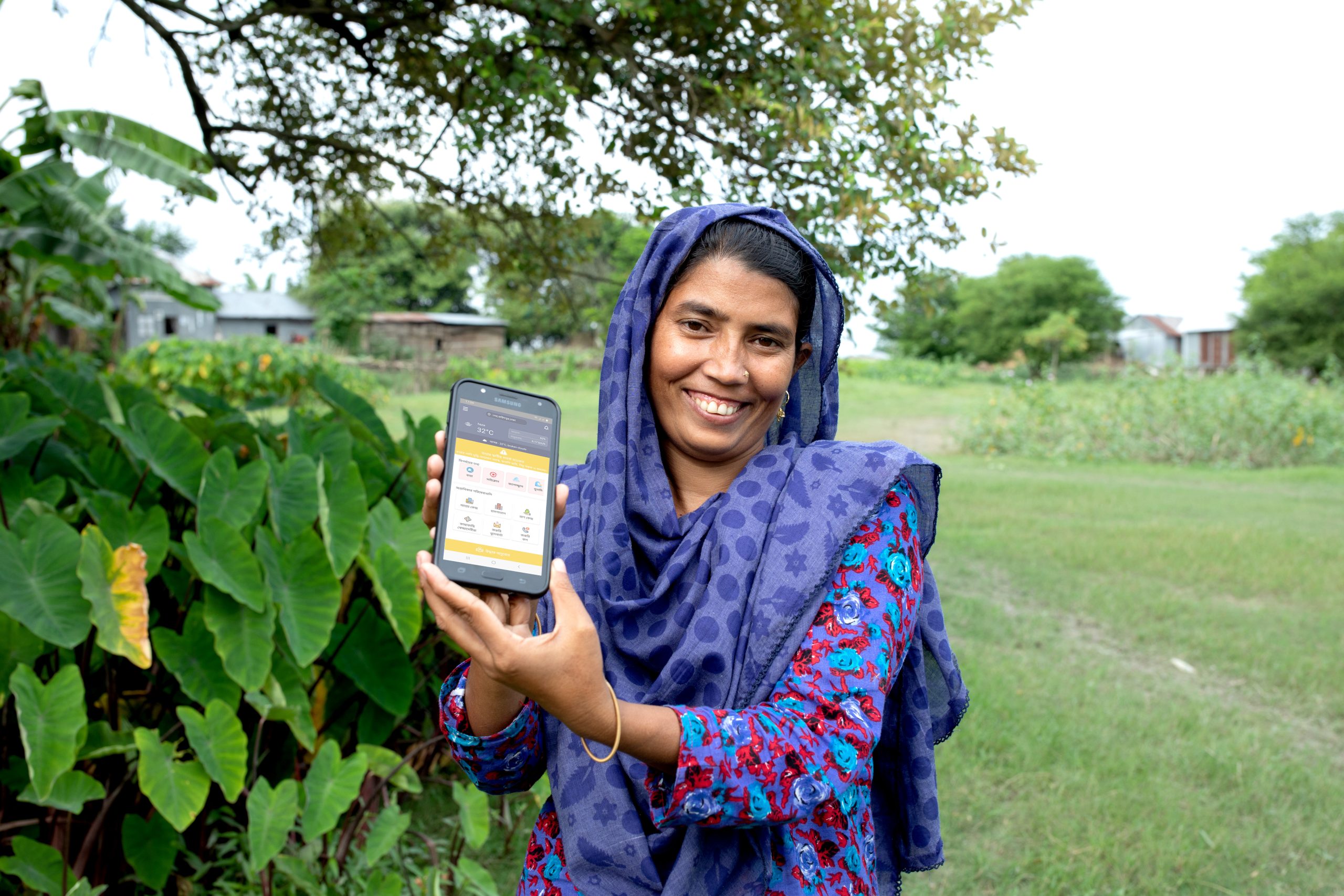Our impact so far
Bangladesh is highly susceptible to a range of hazards due to its geographical location, topography, and climatic conditions. These hazards include floods, heatwaves, cyclones, droughts, landslides, and earthquakes. High population density, poverty and reliance on climate-sensitive sectors of income generation, in particular agriculture, fisheries and livestock, increase its vulnerability to climate change. There are also considerable gaps in implementation of policies linked to disaster management, with the main challenges being the implementation of policies at local level, lack of appropriate investment, and also an absence of evidence of what works in building climate resilience.
Concern Worldwide is working in the districts of Gaibandha and Lalmonirhat. The project intends to work at strengthening resilience of individual communities targeted under this programme as well as overall system strengthening, with a focus on increased funding for flood preparedness and improved implementation of relevant policies. Concern Worldwide is using the Climate Resilience Measurement for Communities (CRMC) tool in 21 communities in Sundarganj and Hatibandha to support communities in implementing interventions that help enhance resilience based on the jointly developed Community Action Plans.
Practical Action is working with 15 communities across the Khulna, Satkhira and Faridpur districts to implement the CRMC. CRMC tools will be used for measuring the overall climate resilience, considering both heat and floods. According to INFORM risk index 2022, Satkhira falls within a very high-risk area and Khulna and Faridpur area fall in the high-risk category. These areas are highly susceptible to climate induced disasters like coastal/tidal flood, riverine flood, heat, tropical cyclone, storm surges, and salinity intrusion riverbank, erosion, and lightning.
The future
Practical Action teams in Bangladesh will target at improved Disaster Risk Management (DRM), Disaster Risk Reduction (DRR) and Climate Change Adaptation (CCA) planning and increased finance/improved spending for DRR/CCA at the local level. This will ensure that the ex-ante resilience of communities is enhanced in line with climate impacts, improved early warning and early action for climate induced hazards to avert and minimize loss of livelihoods and assets, and benefit communities through parametric insurance services.
By continuing to build on the advocacy agenda, Concern will aim to increase local level financing and activating Union Disaster Management Committee’s for flood/heatwave management. Concern will also continue to support communities to enhance early action and work closely with governments to produce a heat warning protocol.








